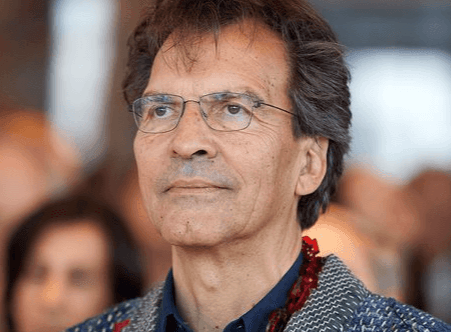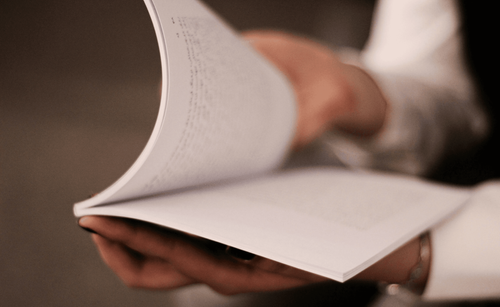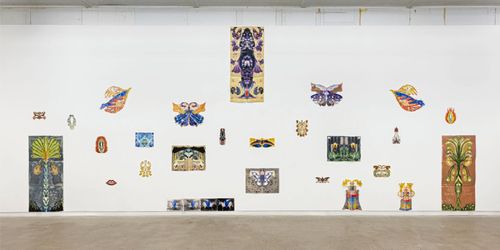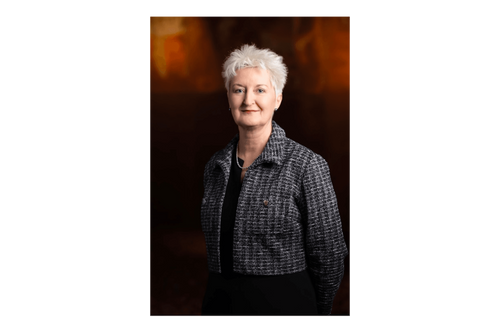SJAREL EX
Freelance Curator, Writer, and Advisor
A New Typology for Museums and Storage
Wednesday, March 15, 2023 From 12 p.m. to 1:30 p.m.EDT On Zoom Conference in English
“In 2004, climate change and maintenance issues stimulated those of us working at Museum Boijmans Van Beuningen to start the process of developing Depot, a new storage space for Rotterdam’s art collection.
Earlier experiences had made me realize that the public is curious about art conservation and restoration processes but isn’t always informed. Various examples of storage-like displays in museums, as well as the innovative work of architects such as Carlo Scarpa and Lina Bo Bardi, also made me keenly aware that using diverse methods of display enhances attention and curiosity.
An inconvenient truth of encyclopedic museums is that only a small percentage of the collection is shown. Although protected and cared for, artworks that remain in storage for generations usually sink into oblivion. However, isn’t a museum’s core responsibility to connect art and artists with diverse audiences and share knowledge, enthusiasm, and even dismay in public?
The specific situation of Rotterdam, a port city with 660,000 inhabitants speaking 176 languages—including many who carry out hard labour to make a fresh start with their family in a new culture and environment—compelled us to reach out through all kinds of innovative, educational initiatives. We also realized that people who are proud of their collection, a treasure belonging to the community, would probably foster renewed engagement.
Such considerations led me to propose a plan to build a Depot next to Museum Boijmans Van Beuningen. As a publicly accessible storage space, Depot would act as the institution’s anchor point, a ‘standing leg’ so to speak, to which the actual museum’s spaces would be the corresponding ‘playing leg’. In the Depot’s mandate and outline of strategic priorities, all the functions involved in caring for a collection (and more) are present and International Council of Museums (ICOM) protocols are fully respected. We give visitors access to the storage spaces, show the offices in the back of the museum, and explore the various situations that can occur in the life of an artwork—the lives of 151,000 artworks.”
— Sjarel Ex, December 2022
Biography
Sjarel Ex (b. 1957) studied art history in Utrecht and became a specialist in the field of the Dutch avant-garde and the connections between the De Stijl movement and the international avant-garde, the German Bauhaus in particular. As a freelance art historian, Ex has published essays and curated exhibitions internationally, and organized site-specific exhibitions in public spaces in Amsterdam (Century ’87, 1987) and Utrecht (Nightlines, 1991 and Panorama 2000, 1999). In 1988, he was appointed General Director at the Centraal Museum Utrecht, where he oversaw the presentation of more than 300 exhibitions, spanning from Utrecht Caravaggism to contemporary art, design, and fashion. When the museum was refurbished, Ex developed innovative storage spaces for its encyclopedic collection. In 2004, he became General Director of Museum Boijmans Van Beuningen, renowned for its collections, exhibitions, and education and research programs. Under his stewardship the museum’s collection grew extensively and a broad program of travelling exhibitions and extramural activities was developed. As the museum entered its renovation period, Ex initiated Depot Boijmans Van Beuningen, an accessible and transparent storage system for the museum’s 151,000 artworks that foregrounds conservation, education, and museum practices. Depot opened in November 2021, to great public and critical acclaim. Ex left Rotterdam in 2022, and continues his career as a freelance curator, writer, and advisor.
For any questions: coordination@cieco.co

Partenaires
Musée d’art contemporain de Montréal (MAC)
Partenaire
Actualités connexes
Lancement de l’ouvrage _L’essor des contre-muséologies_

Lancement de l’ouvrage L’essor des contre-muséologies
- En ligne
- Montréal
L’essor des contre-muséologies, une publication codirigée par Sarah Turcotte, Anna-Lou Galassini et Jean-Marie Lafortune, est l’aboutissement d’un projet de réflexion et de collaboration au long cours, qui s’inscrit dans la continuité de plusieurs initiatives, notamment un colloque présenté au 91e congrès de l’Acfas et un numéro publié en partenariat avec la Fédération Histoire Québec. Il témoigne d’un engagement durable autour des enjeux sociaux, critiques et participatifs en muséologie, et propose des perspectives renouvelées à partir de l’idée des contre-muséologies et de leurs pratiques.
Exposition au Musée d’art de Joliette : _la clarté creuse les montagnes_

Exposition au Musée d’art de Joliette : la clarté creuse les montagnes
- Joliette
- Musée d’art de Joliette
la clarté creuse les montagnes, commissariée par Ariane De Blois, réunit les artistes asinnajaq, Stina Baudin, Nathalie Batraville, Amanda Boulos, Berirouche Feddal, Shannon Garden-Smith, Frantz Patrick Henry et Tyson Houseman.
Webinaire « Musées d’art en plein air / Sculpture Parks »

Webinaire « Musées d’art en plein air / Sculpture Parks »
- En ligne
Le webinaire « Musées d’art en plein air / Sculpture Parks » consiste à donner la parole à des spécialistes et à des professionnels du monde de l’art sur la question de la muséalisation de l’art public.
Conférence d’Isabelle Bertolotti au MAC

Conférence d’Isabelle Bertolotti au MAC
- Montréal
CIÉCO est fier de s’associer au Musée d’art contemporain de Montréal (MAC) pour la tenue d’une conférence de la commissaire Isabelle Bertolotti.
